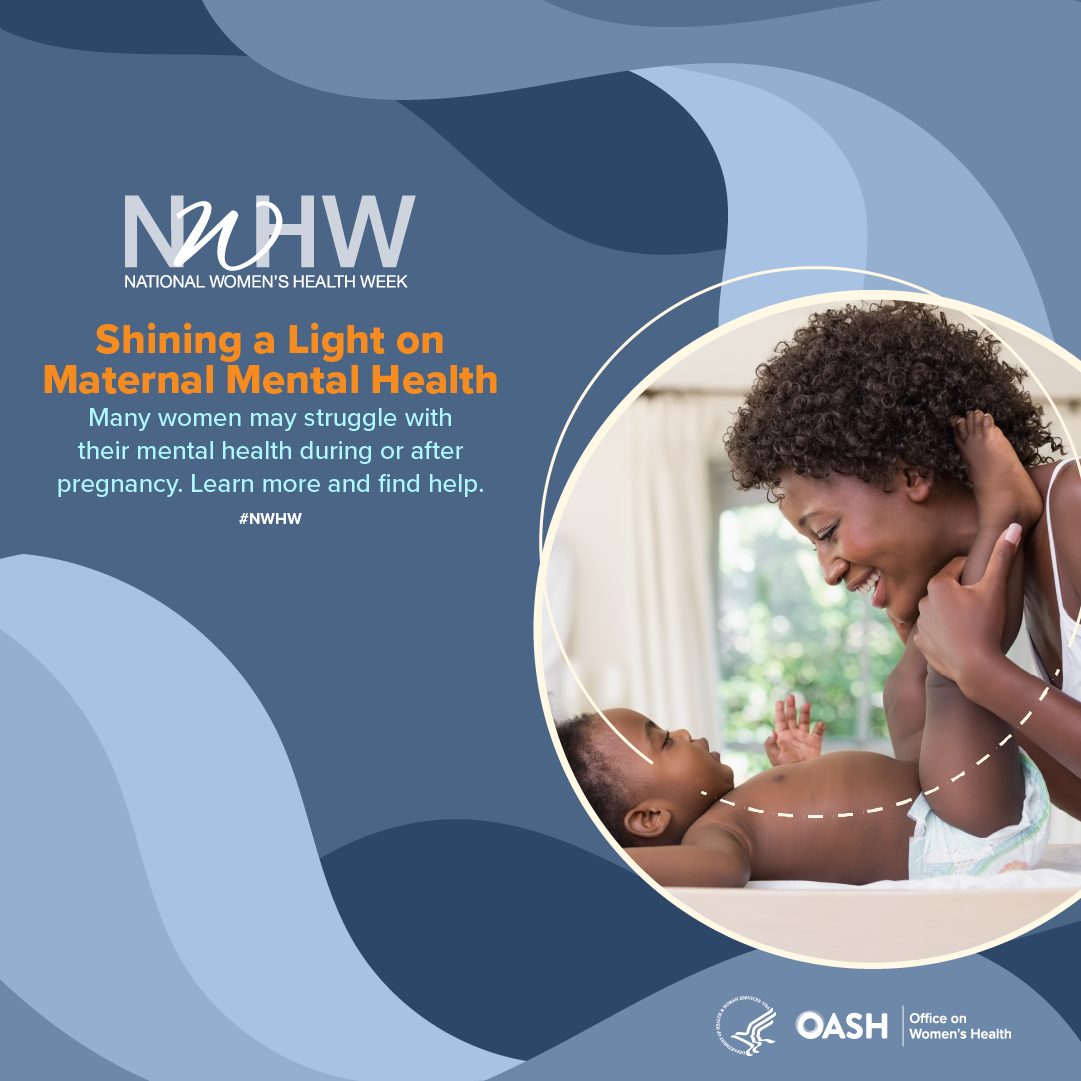
Mental Health Awareness
In recognition of Maternal Mental Health Month and Mental Health Awareness Month, NICHQ highlights opportunities for improvement.
Mental health and behavioral issues affect millions of Americans every year— only 30 to 50 percent of women with mental illness during pregnancy and postpartum are diagnosed in a clinical setting1, and 1 in 5 children and adolescents have a diagnosable mental health disorder that requires intervention or monitoring and interferes with daily functioning.2
Raise Awareness & Celebrate Strength
Improving mental health outcomes can support better health and well-being for children and families across the country. NICHQ highlights Maternal Mental Health Awareness Month to reduce stigma, share information, and advocate for better systems to provide mental health care for all. Join NICHQ in sharing resources that outline the significant role mental health plays in overall health and wellness, as well as strategies for promoting better mental health for mothers and birthing people, fathers, caregivers, children, and families. These resources will help you get started.


Explore the National Women's Health Week Toolkit provided by the The Office on Women's Health (OWH).
Support Caregivers Experiencing Depression
In recognition of National Women's Health Week (May 12-18) and Maternal Mental Health Month, we're sharing resources to create dialogue around maternal depression. Despite the prevalence of maternal depression, too many mothers and birthing people don’t get the help they need to heal. And when mothers' health suffers, their children's health often suffers, too.
- NICHQ Associate Director of Research and Evaluation Dr. Meera Menon, and learned more about her experiences navigating her roles as a maternal child health researcher and new mom in this episode of Before Birth & Beyond. We also highlighted maternal and caregiver mental health resources for healthcare professionals.
- Black mothers are at a higher risk of experiencing postpartum depression and less likely to receive the care they need. This issue brief shares tips for helping Black mothers and families understand the signs of maternal depression.
- Physicians, public health providers, policymakers, families, and community advocates can take action and drive change to improve mother's mental health. This webinar discusses strategies for improving access to maternal depression screenings and interventions.

Building Strength & Resiliency in Children
Mental health in childhood involves reaching developmental and emotional milestones, learning healthy social skills, and understanding how to cope when there are problems.
- Stressful events during childhood can have a negative impact across the lifespan. Promoting protective buffers is a vital way for public health professionals, health care providers, families, and policymakers to help more children have a healthy future. Learn more.
- Strong early social and emotional development gives children the building blocks for lifelong mental health. Pediatric care professionals can help children build this foundation by fostering social and emotional development. Learn more.
Mental Health & Sickle Cell Disease
To acknowledge the impact of sickle cell disease (SCD) on patients' mental health and to increase awareness of this rare and painful disease, the Sickle Cell Disease Coalition (SCDC) has created reading lists of recommended literature on SCD in an array of genres for children, young adults, and adults.
NICHQ is partnering with patient advocates and experts in sickle cell disease care to support increased appointment attendance and to learn more about the impact of COVID-19 for people living with SCD.
- Learn more about the initiative, Disseminating Results: Missed Sickle Cell Disease Clinic Appointments and the Health Belief Model

Let's Do More for Fathers
One in 10 fathers experience Paternal Postpartum Depression (PPPD)3 and up to 16 percent of fathers suffer from an anxiety disorder during the perinatal period.4 These two articles outline opportunities to better support fathers.
- Making Fathers Visible in Maternal and Child Health: This article discusses how children with involved fathers achieve better outcomes on nearly every measure of child well-being and mothers experience improved mental health and well-being.
- Promoting Fathers’ Mental Health During Children's Early Childhood. This article outlines four strategies health care providers and public health professionals can use to address dads’ mental health.
2 US Department of Health and Human Services (USDHHS). Mental Health: A Report of the Surgeon General. Washington, DC: US Government Printing Office; 2000. Available online at http://profiles.nlm.nih.gov/ps/retrieve/ResourceMetadata/NNBBHS.
3 Paulson JF, Bazemore SD. Prenatal and Postpartum Depression in Fathers and Its Association With Maternal Depression: A Meta-analysis. JAMA. 2010;303(19):1961–1969. doi:10.1001/jama.2010.605

